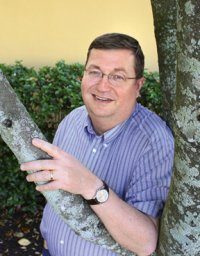The End of the World, and a Beginning
Nick Mamatas is an author (see Sensation and You Might Sleep) and an editor at Haikasoru.
It may seem mercenary, or perhaps just odd, to suggest that everyone read the exact Japanese SF novel I’ve just finished editing, but I’m going to do it anyway. Project Itoh’s debut novel Genocidal Organ will be published by Haikasoru in August 2012, and I highly recommend it.
Due to the nature of our acquisition and translation processes, I am often surprised by the course of the plots of our books, just as a reader is. Genocidal Organ starts off typically enough: in the near future the world is being torn apart by war, and only a brave and particularly intelligent American military man can save the planet by thwarting a conspiracy. Good stuff, sure, but then the book takes a strange and thrilling turn. Anyone who follows online discussions of SF and fandom will have come across recent discussions of evolutionary psychology, the limits of rationality, and the so-called “rape modules” supposedly embedded in the brains of human males. Itoh also deals with these concepts, but turns them on their head in a way that’s both terrifying and awesome. There’s also this killer line: “I’ll fight to the death for my family’s right to eat as many Big Macs as they like and then throw away whatever they can’t eat.”
If Itoh, who died of cancer in 2009 at the beginning of his career, is known to the US, it’s thanks to his novel Harmony. Harmony won the Seiun and Japan SF awards, as well as the 2010 Special Citation for the Philip K. Dick Award here in the US. In Japan, Genocidal Organ was published first, and it is understood that the horrific utopia of Harmony emerged from the chaos and bloodshed of Genocidal Organ. One need not read Genocidal Organ first to appreciate Harmony, but now that both books are available I hope people read them in order of their original publication.
As far as a work of Japanese SF not yet translated into English, I’d recommend Kenzaburō Ōe’s 1990 novel Chiryōto (The Treatment Tower or The Tower of Healing). Despite Ōe’s 1994 Nobel Prize for literature and the English-language publication of many of his books, this one remains untranslated. Ōe, known for “pure literature,” seemingly turned to science fiction in order to grapple with the social issues of the day in a way that realist fiction was incapable of doing. In this, and thanks to his abiding interest in championing “decency” as a central social value, Ōe reminds me of George Orwell. Chiryōto is a dystopia in which nuclear war has occurred, people with AIDS wear yellow stars, and where the earth itself is on the verge of becoming uninhabitable. However, Ōe doesn’t wallow in misery; his vision isn’t that of the now cliché grim meathook future. In the hills of Nagano, there is still hope, the chance for a new world to be born from the old. In these days of dime-a-dozen dystopias, hope is a theme I wish more writers would explore.





Interesting to know the original publication order for the two books by Itoh; I’ll have to check them out and I’ll be sure to do so in the right order!
Pingback:Locus Online Monitor » New Books, 21 August